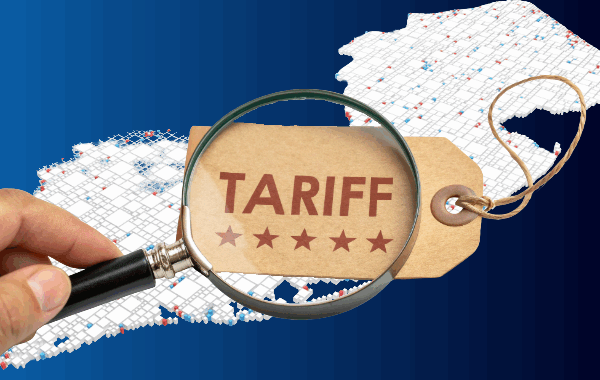An Assembly committee on Thursday voted unanimously to advance legislation supported by NJBIA and the state’s trucking industry that would delay the state’s compliance with California’s clean-engine rules for medium and heavy-duty trucks for two years.
Bill A-4967, sponsored by Assemblyman Clinton Calabrese (D-36), was released by the Assembly Transportation and Independent Authorities Committee after three hours of testimony from businesses who noted the infrastructure for charging fleets of EV trucks is not publicly available yet. The clean truck rule, currently set to take effect Jan. 1, “puts the cart before the horse,” would disrupt supply chains and increase the cost of food and products trucks transport, they said.
The bill’s Senate counterpart, S-3817, sponsored by Sen. Patrick Diegnan (D-18), also has strong bipartisan support, but was not scheduled for a vote Thursday.
Both bills require the state Department of Environmental Protection to delay the implementation of the Advanced Clean Trucks (ACT) regulations from Jan. 1, 2025, until at least Jan. 1, 2027.
“We are rapidly approaching the day of reckoning if this bill does not become law, or if alterations are not made to the Advanced Clean Truck rule by Jan. 1,” said NJBIA Deputy Chief Government Affairs Officer Ray Cantor.
“As we forecasted when the rule was originally proposed, the demand, affordability, and feasibility for the purchase of electric trucks in such a compressed time frame isn’t there for many businesses.
“Without hitting the pause button, the rule will needlessly cost the trucking industry hundreds of millions of dollars, and it will decimate the logistics industry, including our ports. And those costs will be passed on to consumers and it will likely impact our supply chain,” Cantor said.
“New Jersey should follow the lead of states that have already paused the rule or are considering it.”
So far, Massachusetts and Oregon have already delayed implementation of Advanced Clean Truck (ACT) regulations, which mirror the same rules set by the California Air Resources Board (CARB).
In New York, there are continuing efforts to delay or alter the rule by lawmakers and trucking stakeholders.
At the same time, ACT is also being challenged in federal court by attorneys general from 19 states and a coalition of stakeholders.
In New Jersey, beginning with model year 2025, Advanced Clean Trucks require a certain percentage of sales of new trucks to be zero-emission vehicles (ZEV). That percentage increases every year through model year 2035.
Currently under the ACT regulation in California, a manufacturer generates ZEV credits for each ZEV produced, delivered, and sold for purchase in state for the manufacturer-designated model year.
That means ZEV credits are only earned when a new, on-the-road ZEV is sold to the final purchaser in California. If the ZEVs are not sold, diesel trucks can’t be sold either.
“It basically means manufacturers are forced to deliver ZEV trucks to their dealers in their state until a sufficient number are purchased by consumers that generate enough credits to allow the manufacturers to then start delivering non-ZEV or internal combustion engine trucks to their dealers,” Cantor said.
“Until that point, dealers are stuck with ZEV trucks that few people want to buy, and then customers are waiting to buy gas-powered trucks that dealers can’t get from their manufacturers. This is not a recipe for business success.
“Further, if the rule is not delayed, purchasers will be forced to buy diesel trucks out–of-state, thus harming in-state dealers,” Cantor said.




